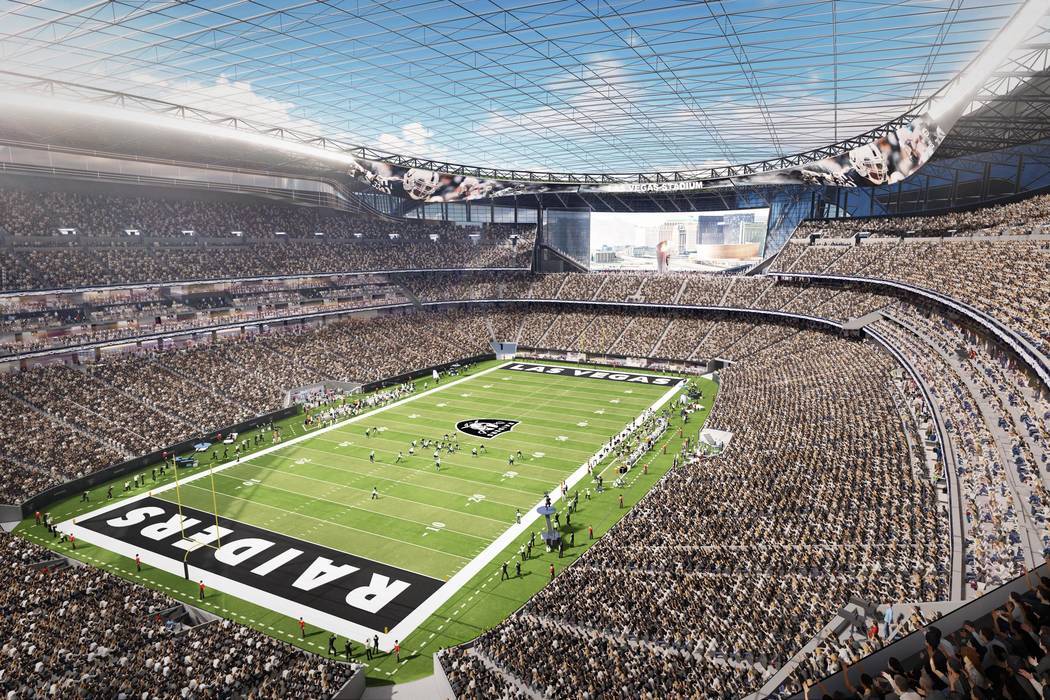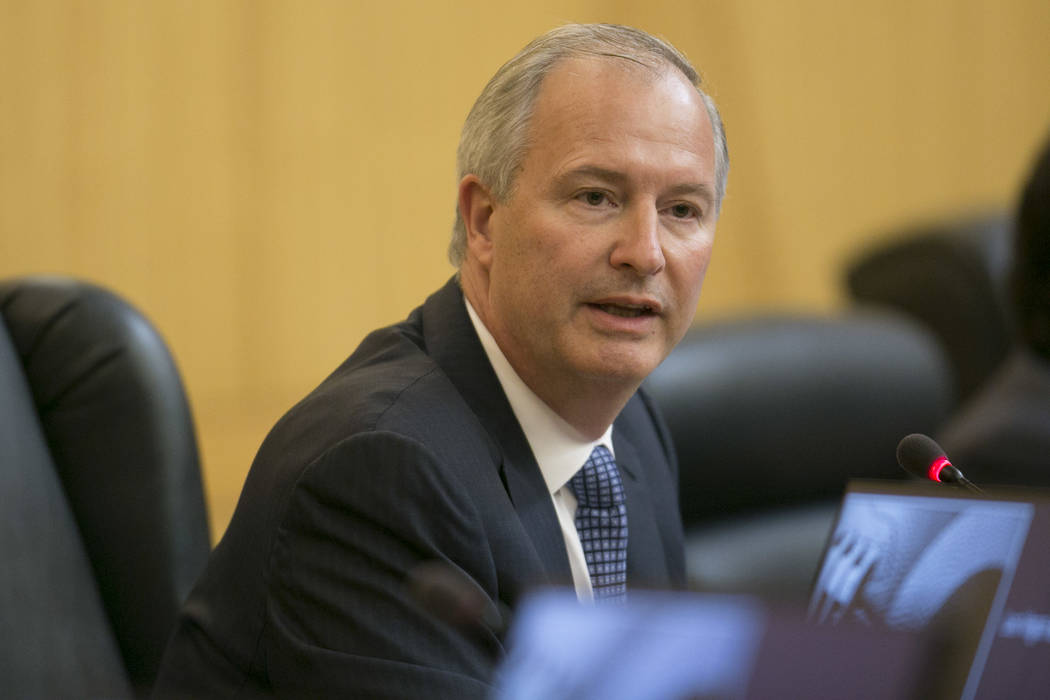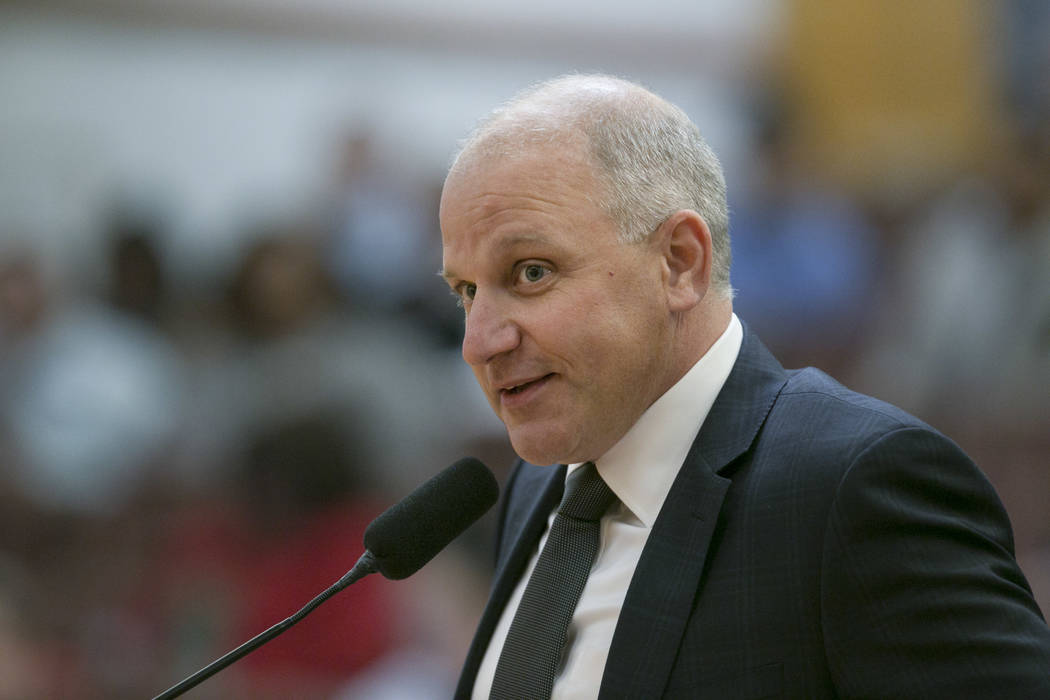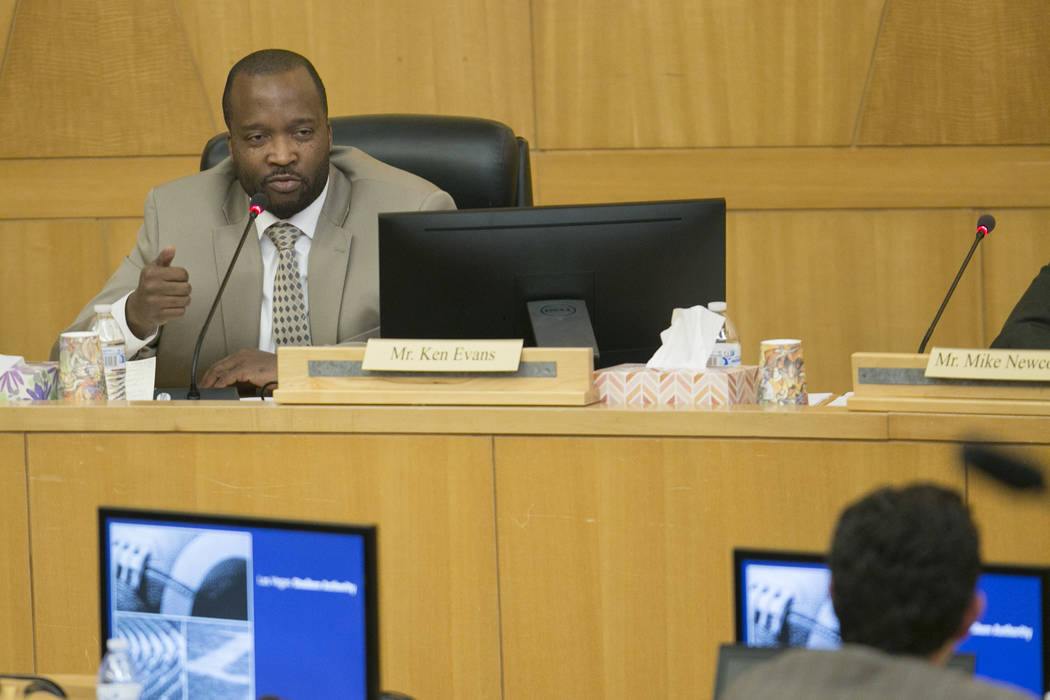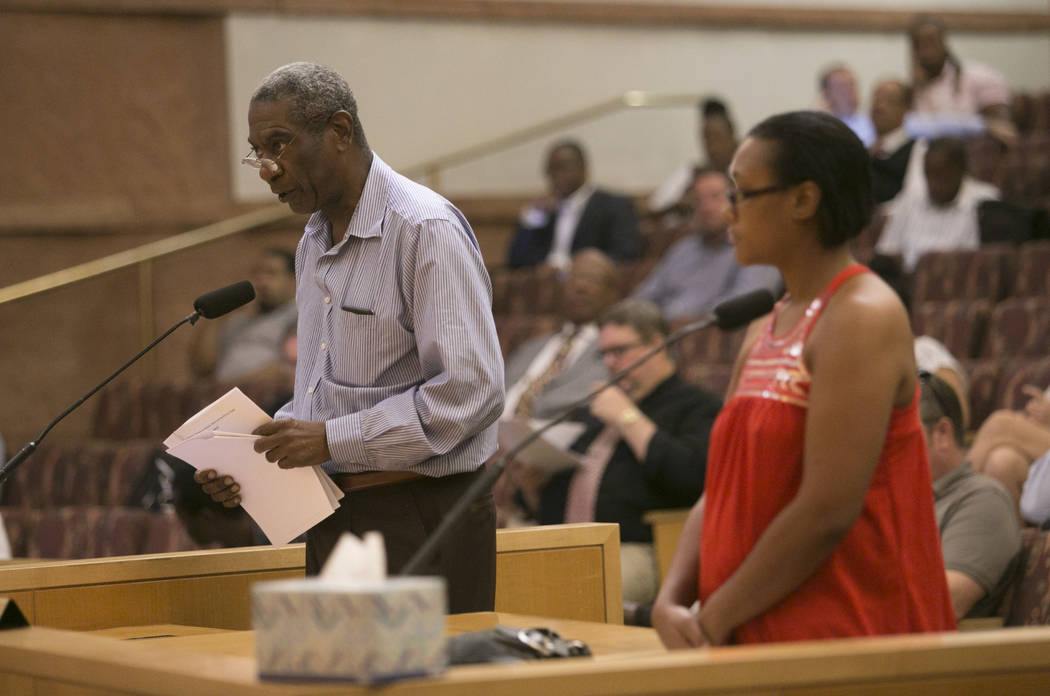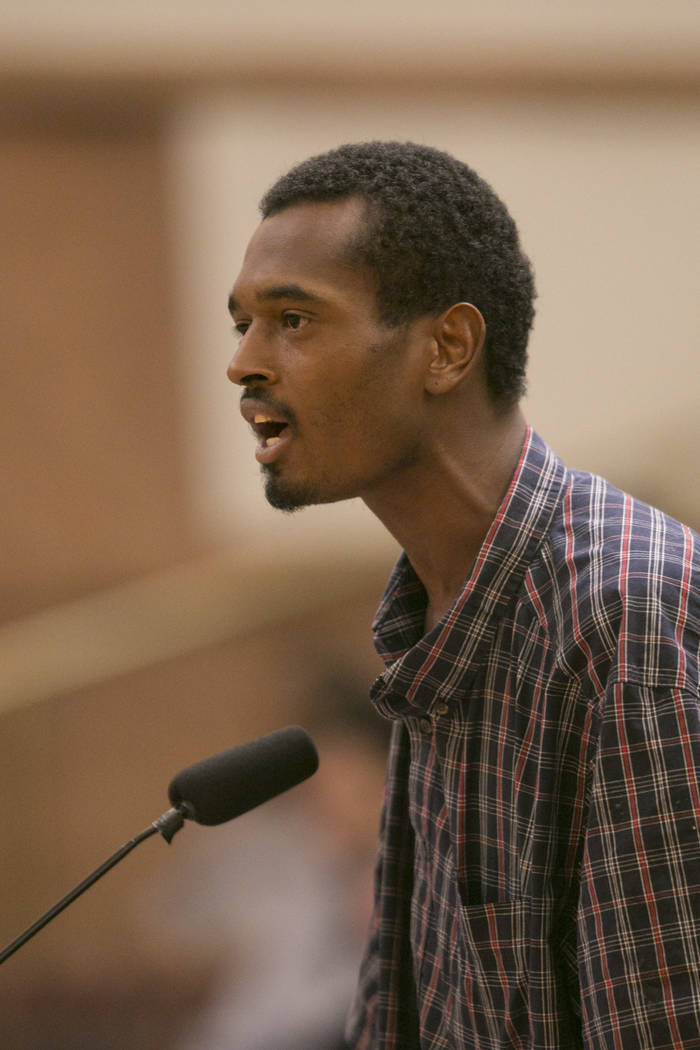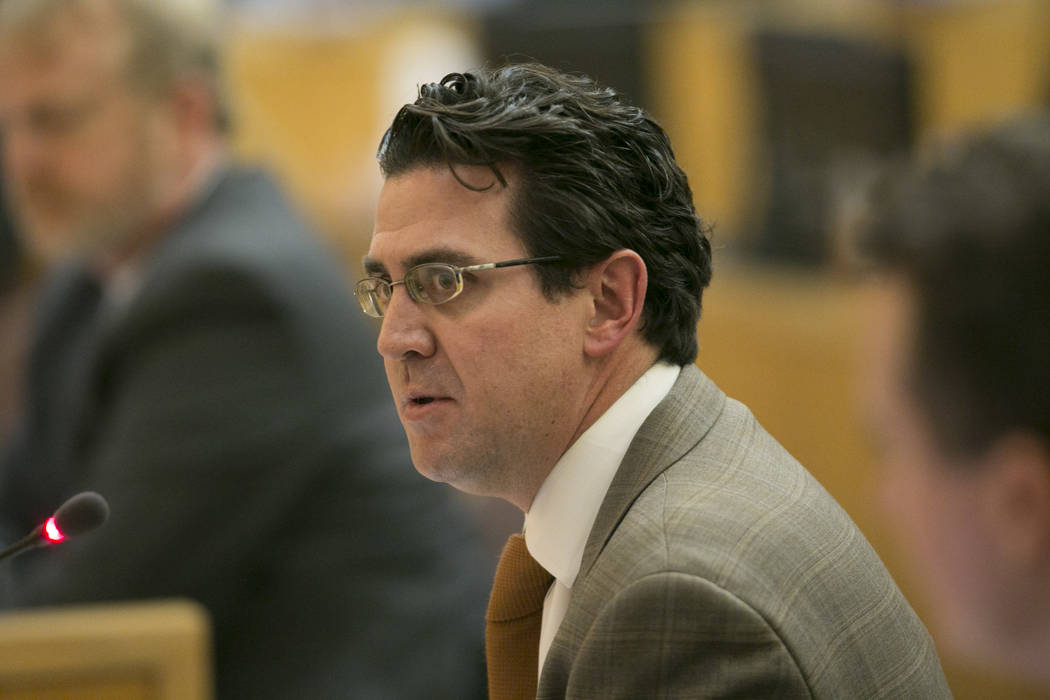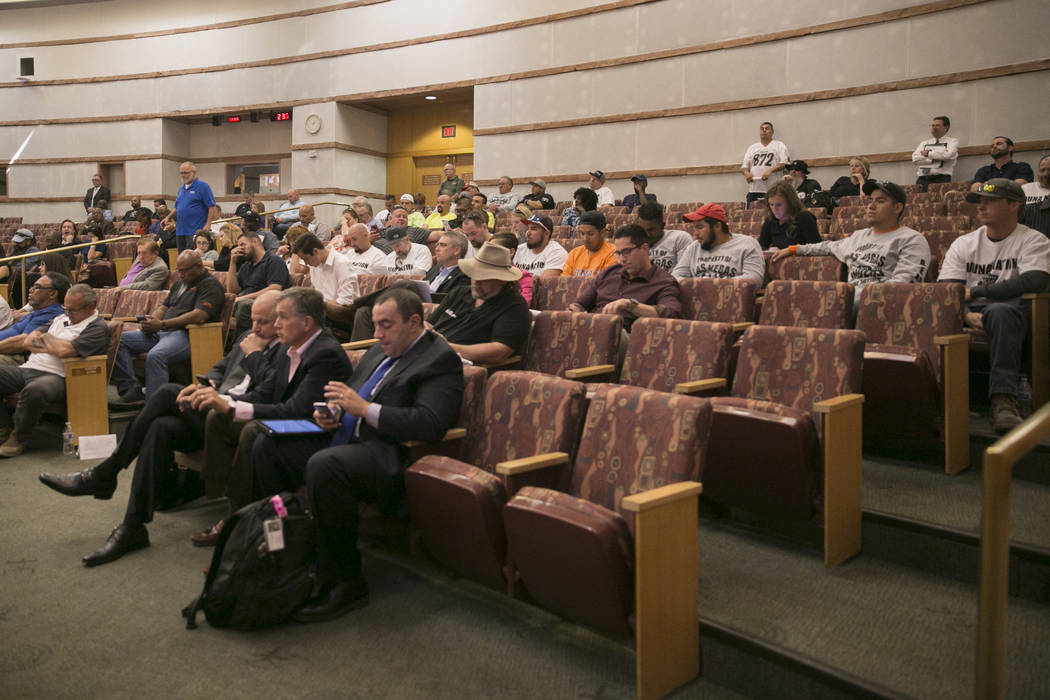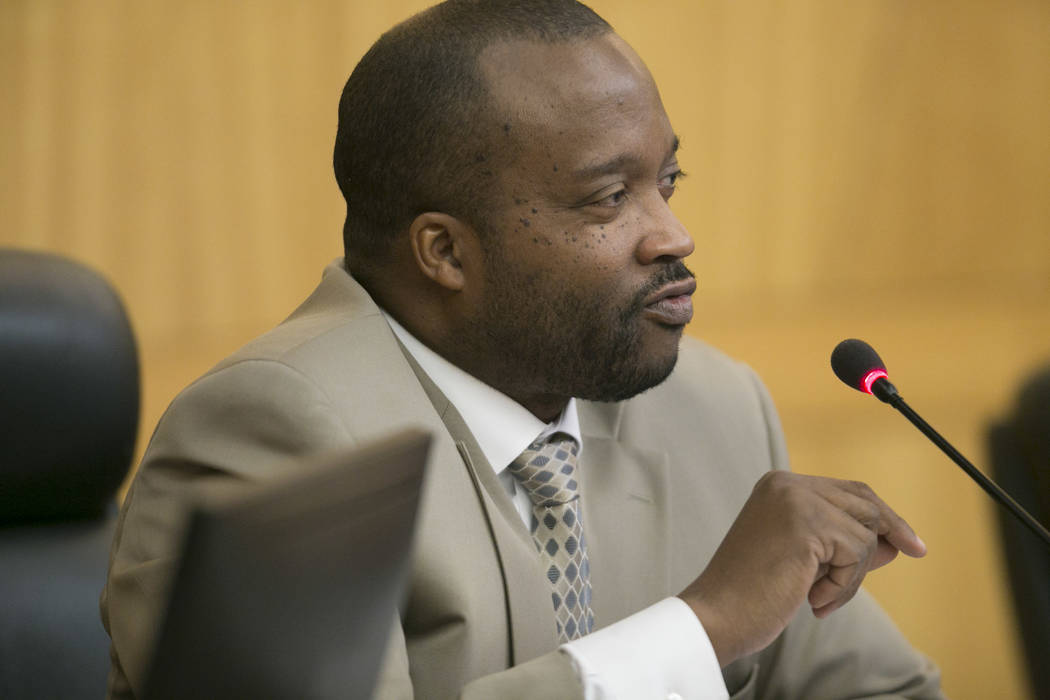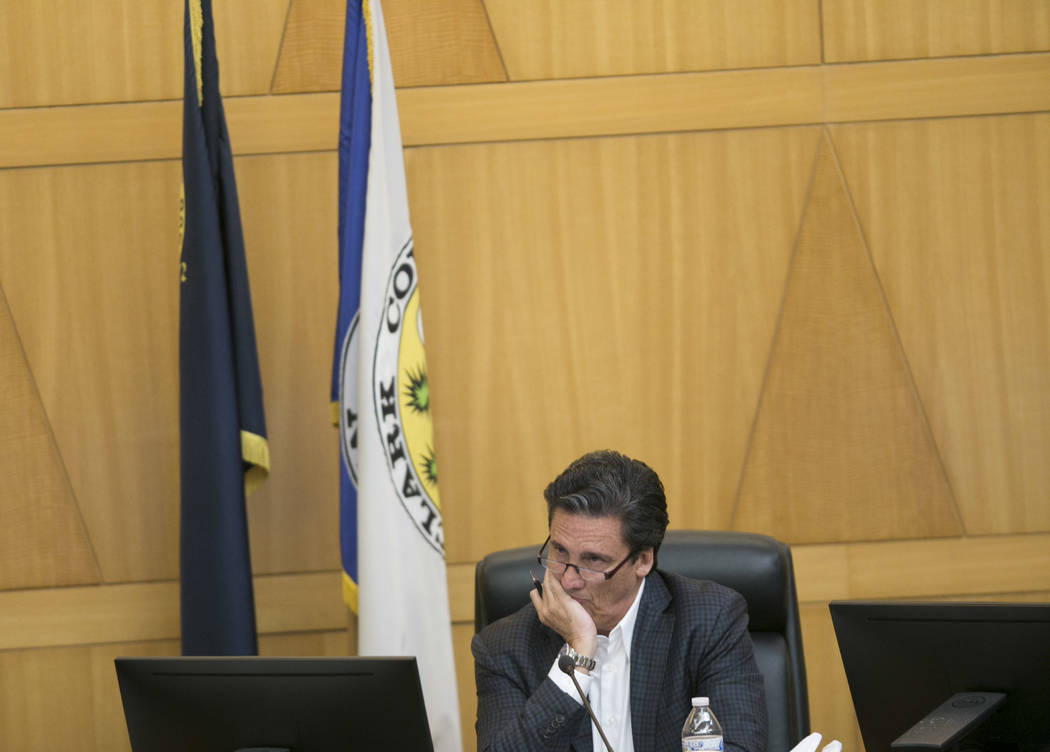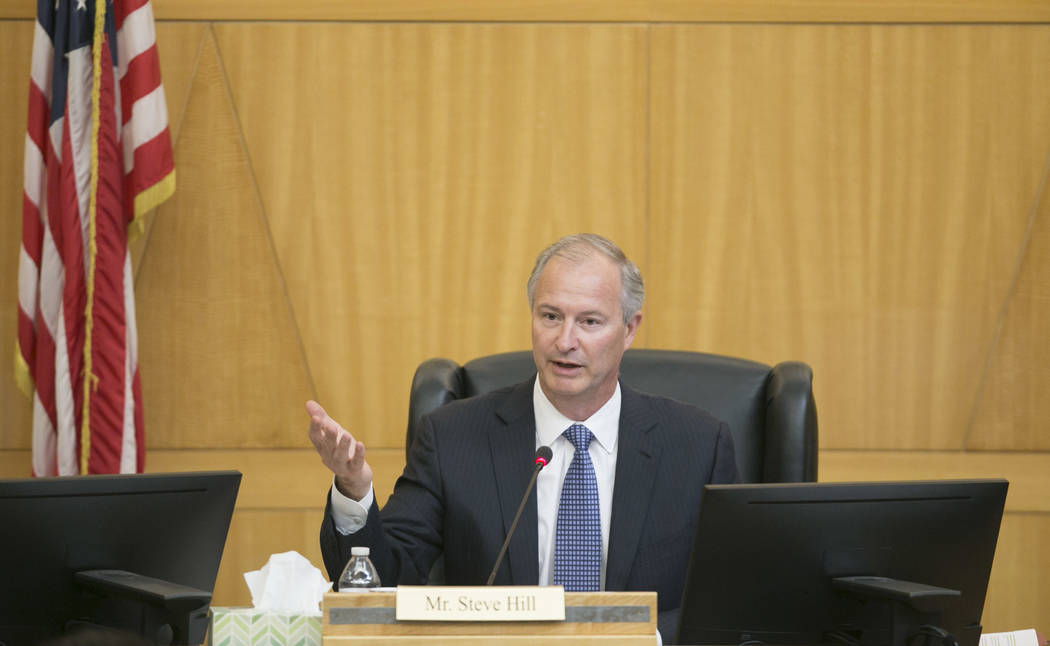Tempers flare over Las Vegas Raiders Stadium community benefits plan
It isn’t unusual for tempers to flare when the Oakland Raiders are on the football field.
On Thursday, the team saw how tense things can get at a public meeting.
The Raiders had just distributed their first draft of a community benefits plan at Thursday’s monthly Las Vegas Stadium Authority board session.
The plan, which has been the topic of public comment and criticism among members of the historic West Las Vegas business community, spells out how the Raiders’ stadium contractors will distribute a percentage of subcontracts to small and qualified minority-owned businesses.
When Stadium Authority Chairman Steve Hill opened the meeting for public comment, he received a barrage of suggestions from the Concerned Citizens of Historic West and North Las Vegas and the Get Active Foundation, which composed their own community benefits plan suggestions.
Specific benefits
The organizations’ version seeks specific benefits — 25 percent of the dollar amounts spent for professional services, construction and supplies for the stadium going to “small businesses of color and veterans in Clark County;” $100 million to incubate community and person-of-color small business development in the 89106 and 89030 ZIP codes; and 10 percent of Raiders game tickets to be discounted to residents of those ZIP code areas and veterans — among them.
The organization also wants a nine-member oversight and accountability committee monitoring the benefits plan to be comprised of five members appointed by the Concerned Citizens of Historic West and North Las Vegas and four appointed by the Urban, Latin, Asian and Women’s chambers of commerce.
The Raiders’ draft considers hiring targets of 15 percent of the contracts to local small businesses. It also contemplates a seven-member oversight board with two people, including the chair, appointed by the Stadium Authority, two appointed by the governor in consultation with legislative leaders and three members appointed by the Raiders.
Community outreach
The Raiders’ version also includes a community outreach and collaboration program that seeks input from the Latin, Urban and Asian chambers, as well as the National Association of Minority Contractors, Western Region Minority Supplier Development Council, the Women’s Business Enterprise Council and the Gay and Lesbian Chamber of Commerce.
It also addresses workforce training and development, an internship program for high school and college students and community interaction from the Raiders Foundation through its Corporate Responsibility Program. That program includes player participation in programs at local schools designed to encourage students to sharpen their skills on the field and in the classroom, in Breast Cancer Awareness Day and fundraising, in programs designed to encourage healthy lifestyle and proper diet and exercise for children and in safety clinics for youth football coaches.
Hill said after the meeting that while the Raiders are open to receiving suggestions on the benefits plan, the responsibility of producing it falls to the team.
“The law itself requires that the Raiders put together a plan and that the oversight committee oversee and enforce that plan,” Hill explained. “It does not say that the Stadium Authority has any right legally to approve the plan or require that the plan have different aspects to it.”
Not a negotiation
He said while the Raiders can solicit comments, the plan is not subject to negotiation.
“This is the Raiders’ plan,” he said. “We know they want to have a great plan and are certainly involving us in that conversation. So I wouldn’t really characterize it as a negotiation. I would say that we’ve been open to input and will continue to be open to input.”
The community benefits plan is important because it also addresses a project labor agreement, and the team’s contractors are inching closer to site preparation work for construction of a $1.9 billion, 65,000-seat domed stadium on a 62-acre stadium site at Interstate 15 and Russell Road.
In one of the only formal actions the board took Thursday, members, as expected, unanimously approved extending the deadline for a formal development agreement on stadium construction.
Under the law approved by the Nevada Legislature and signed by Gov. Brian Sandoval, the authority had until Oct. 17 to complete the agreements needed to begin construction but had the option of extending the deadline by six months.
February deadline
The deadline now will be extended, and officials with the team and the authority expect work to be completed by February.
In the meantime, the Raiders, who technically own the stadium site until they turn it over to the authority, can do what they want on the site. Next month, the authority will consider an enabling work agreement that will spell specifics of what contractors can do on the site with the understanding that the Raiders, and not the authority, are liable for anything that happens there.
Contact Richard N. Velotta at rvelotta@reviewjournal.com or 702-477-3893. Follow @RickVelotta on Twitter.
Contract signing
Also on Thursday, Raiders officials also announced that they expect to sign their contract with Bank of America this week for a $600 million loan to contribute to the construction contract along with $750 million in public money generated by an increase in Clark County's hotel room tax.



